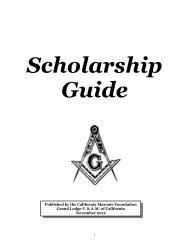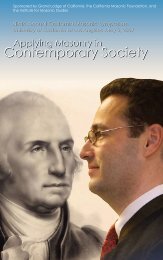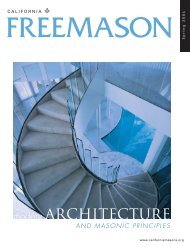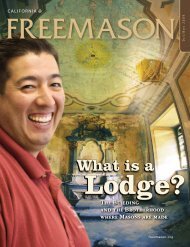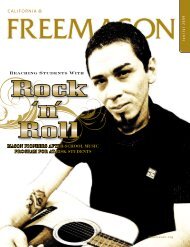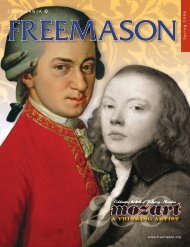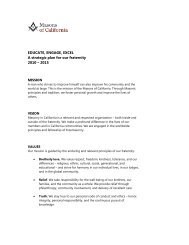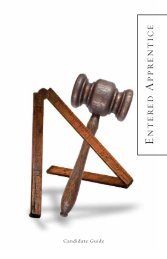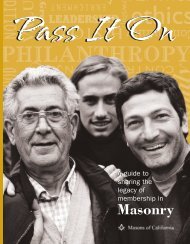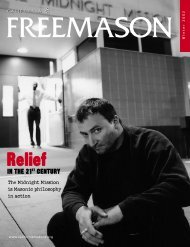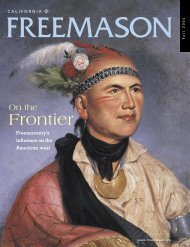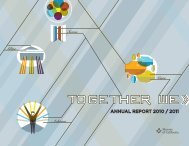Winter 2004 - Freemason.org
Winter 2004 - Freemason.org
Winter 2004 - Freemason.org
You also want an ePaper? Increase the reach of your titles
YUMPU automatically turns print PDFs into web optimized ePapers that Google loves.
MASONIC EDUCATION<br />
California <strong>Freemason</strong> 18 <strong>Winter</strong> <strong>2004</strong><br />
Boo k<br />
The First <strong>Freemason</strong>s<br />
Scottland’s Early Lodges and Their Members<br />
David Stevenson<br />
By Dennis V. Chornenky<br />
MacMillan Publishing Company Written by historian David Stevenson, who is not a<br />
ISBN 0080377246<br />
Mason, this book offers an in-depth look into the formative<br />
Copyright 1989<br />
period of speculative <strong>Freemason</strong>ry and its Scottish roots.<br />
(Softcover, 280 pages)<br />
The book discusses 25 different lodges and their members<br />
during the 17th and early 18th centuries. It provides a<br />
fascinating look at the social and cultural circumstances in<br />
which the lodges functioned throughout Scotland and sheds<br />
light on their role in the development of Scottish civil society.<br />
Stevenson seeks to correct the two common misconceptions: that modern<br />
<strong>Freemason</strong>ry first emerged in England and that the process was one of a slow<br />
evolution from the operative craft of the Middle Ages. He maintains that the<br />
evidence shows the emergence of <strong>Freemason</strong>ry involved “an act of creation, not just<br />
evolution.” The author paints a larger picture of how the “legacy of the Middle Ages<br />
was remodeled and combined with Renaissance themes and obsessions to create a<br />
new movement.”<br />
Anyone serious about understanding the early period of <strong>Freemason</strong>ry and the<br />
impact of Renaissance ideals and philosophies on its development must consider<br />
this expertly researched work.<br />
Reviews<br />
<strong>Freemason</strong>ry<br />
A Study of Phenomenon<br />
Alexander M. Piatigorsky By John L. Cooper III, Grand Secretary<br />
Harvill Press<br />
Ready to dig into an intellectual treasure trove<br />
ISBN: 1860462650<br />
about <strong>Freemason</strong>ry? Do not pass up the chance to<br />
Copyright 2000<br />
read “<strong>Freemason</strong>ry: A Study of a Phenomenon.” This<br />
(Softcover, 416 pages)<br />
book is an exciting intellectual adventure awaiting the<br />
astute reader.<br />
The first part of the book is an excellent recap of<br />
the history of <strong>Freemason</strong>ry as viewed by reputable,<br />
contemporary historians. But the true intellectual adventure begins in the second<br />
part. Piatigorsky is a student of comparative religion and he understands the<br />
arguments of anti-Masons who oppose the institution because they believe it<br />
to be a religion—a religion of naturalistic philosophy that cannot be accepted<br />
by adherents of revealed religions. Piatigorsky takes the reader to the heart of<br />
the argument and clearly explains the philosophical foundations upon which<br />
<strong>Freemason</strong>ry is based.<br />
If you want to know what the argument about <strong>Freemason</strong>ry being a religion<br />
is all about—and want to understand why it is often misrepresented as being a<br />
religion (as opposed to a religious institution)—you will find it all here.




